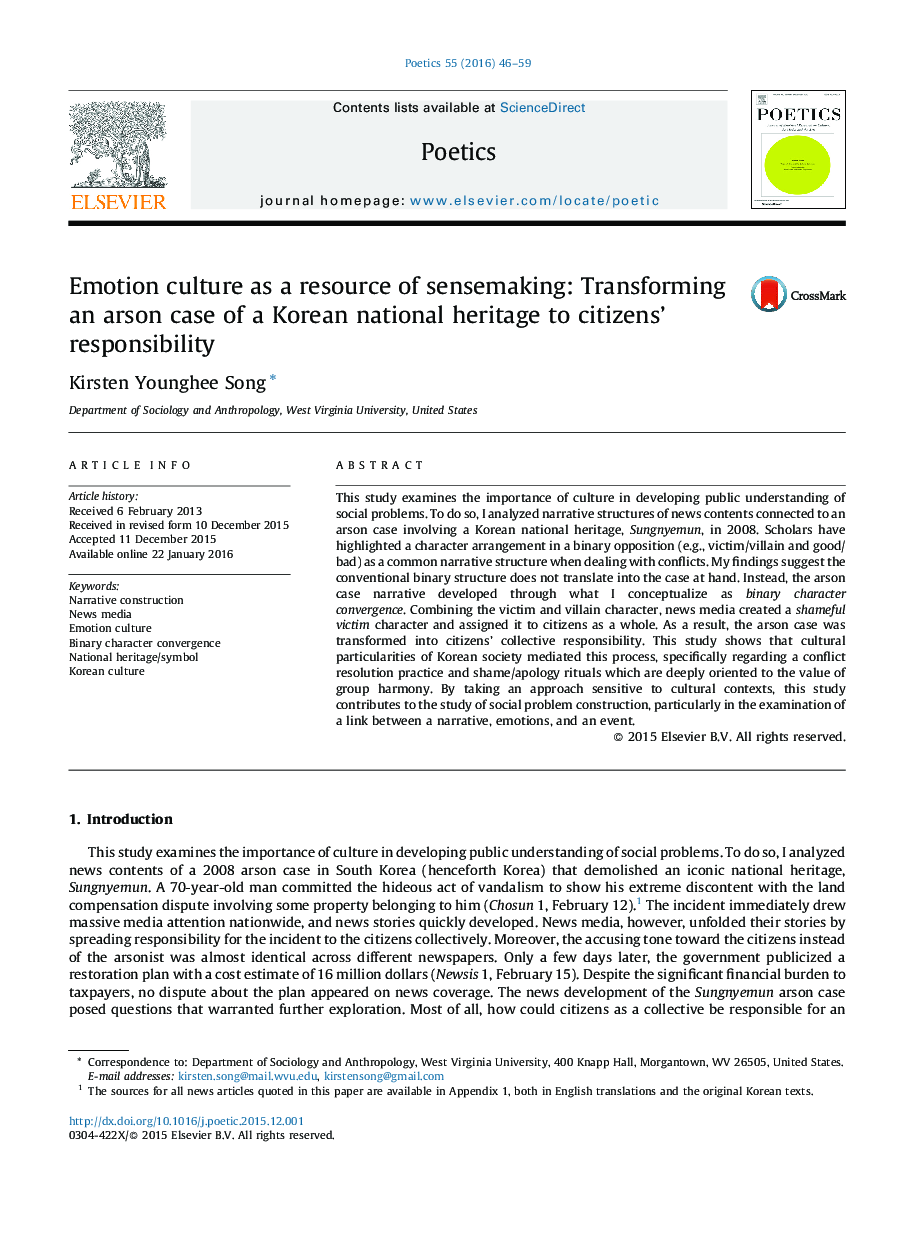| کد مقاله | کد نشریه | سال انتشار | مقاله انگلیسی | نسخه تمام متن |
|---|---|---|---|---|
| 1128281 | 1488764 | 2016 | 14 صفحه PDF | دانلود رایگان |
• The importance of culture in developing public understanding of social problems.
• News content analysis of an arson case involving a Korean national heritage, Sungnyemun in 2008.
• The typical binary structure of a narrative (i.e., victim/villain) was deconstructed in Korean cultural contexts (i.e., the strong collectivist value).
• News media combined a victim (i.e, citizens) and villains (i.e., arsonist/government agencies) into one collective character “we” as a whole nation and shame was a key to the process.
• National solidarity as a potential outcome of the narrative construction.
This study examines the importance of culture in developing public understanding of social problems. To do so, I analyzed narrative structures of news contents connected to an arson case involving a Korean national heritage, Sungnyemun, in 2008. Scholars have highlighted a character arrangement in a binary opposition (e.g., victim/villain and good/bad) as a common narrative structure when dealing with conflicts. My findings suggest the conventional binary structure does not translate into the case at hand. Instead, the arson case narrative developed through what I conceptualize as binary character convergence. Combining the victim and villain character, news media created a shameful victim character and assigned it to citizens as a whole. As a result, the arson case was transformed into citizens’ collective responsibility. This study shows that cultural particularities of Korean society mediated this process, specifically regarding a conflict resolution practice and shame/apology rituals which are deeply oriented to the value of group harmony. By taking an approach sensitive to cultural contexts, this study contributes to the study of social problem construction, particularly in the examination of a link between a narrative, emotions, and an event.
Journal: Poetics - Volume 55, April 2016, Pages 46–59
